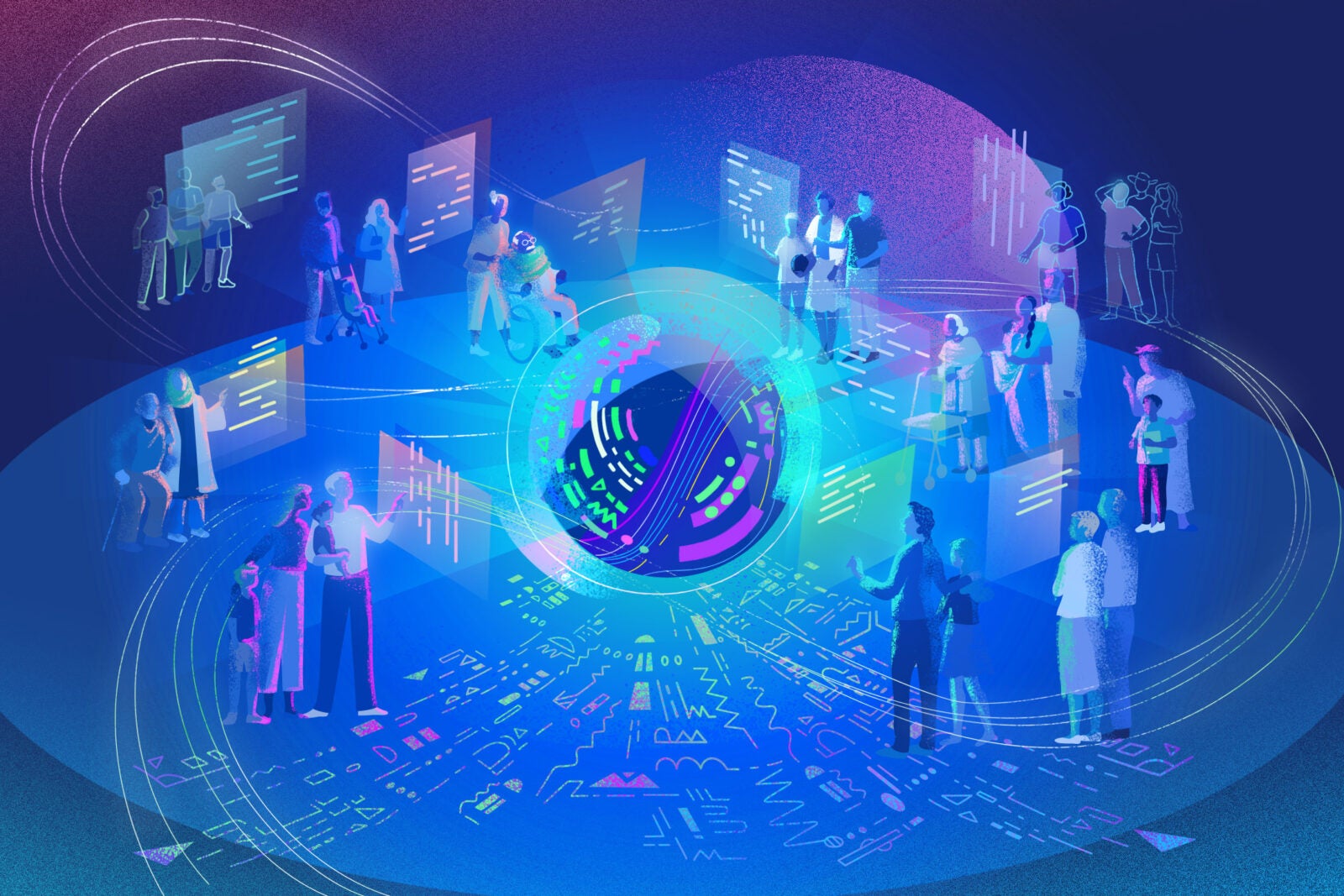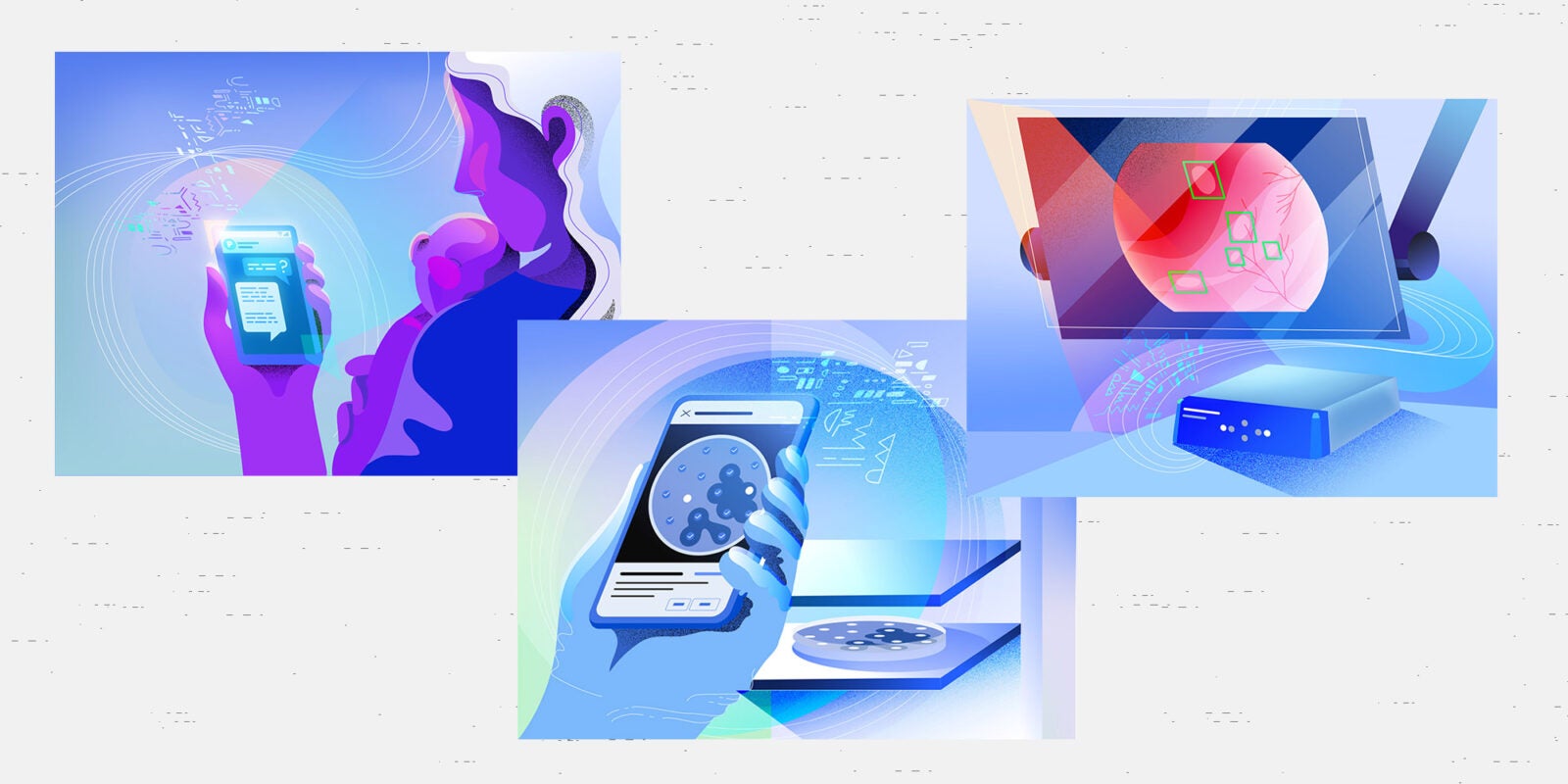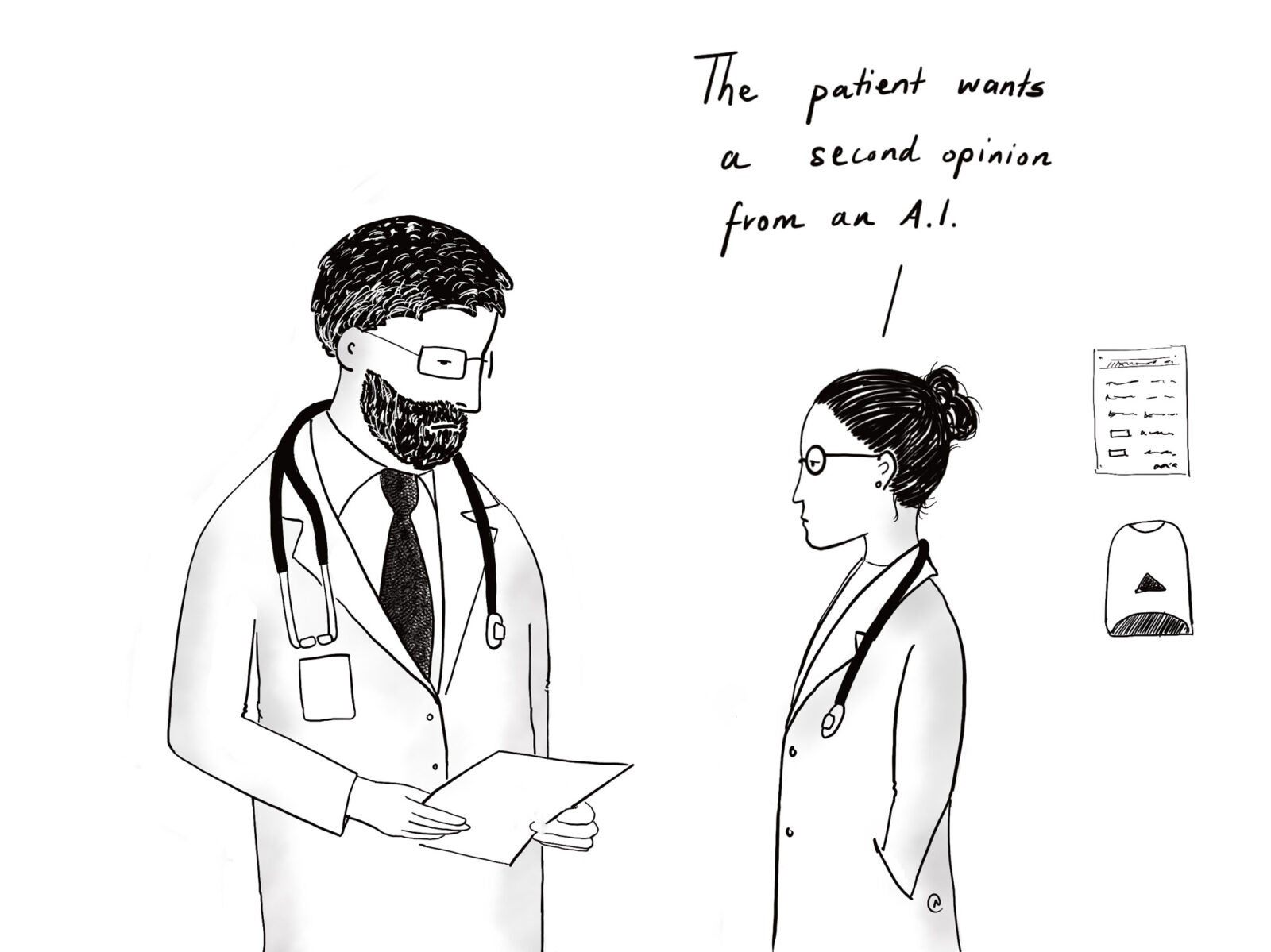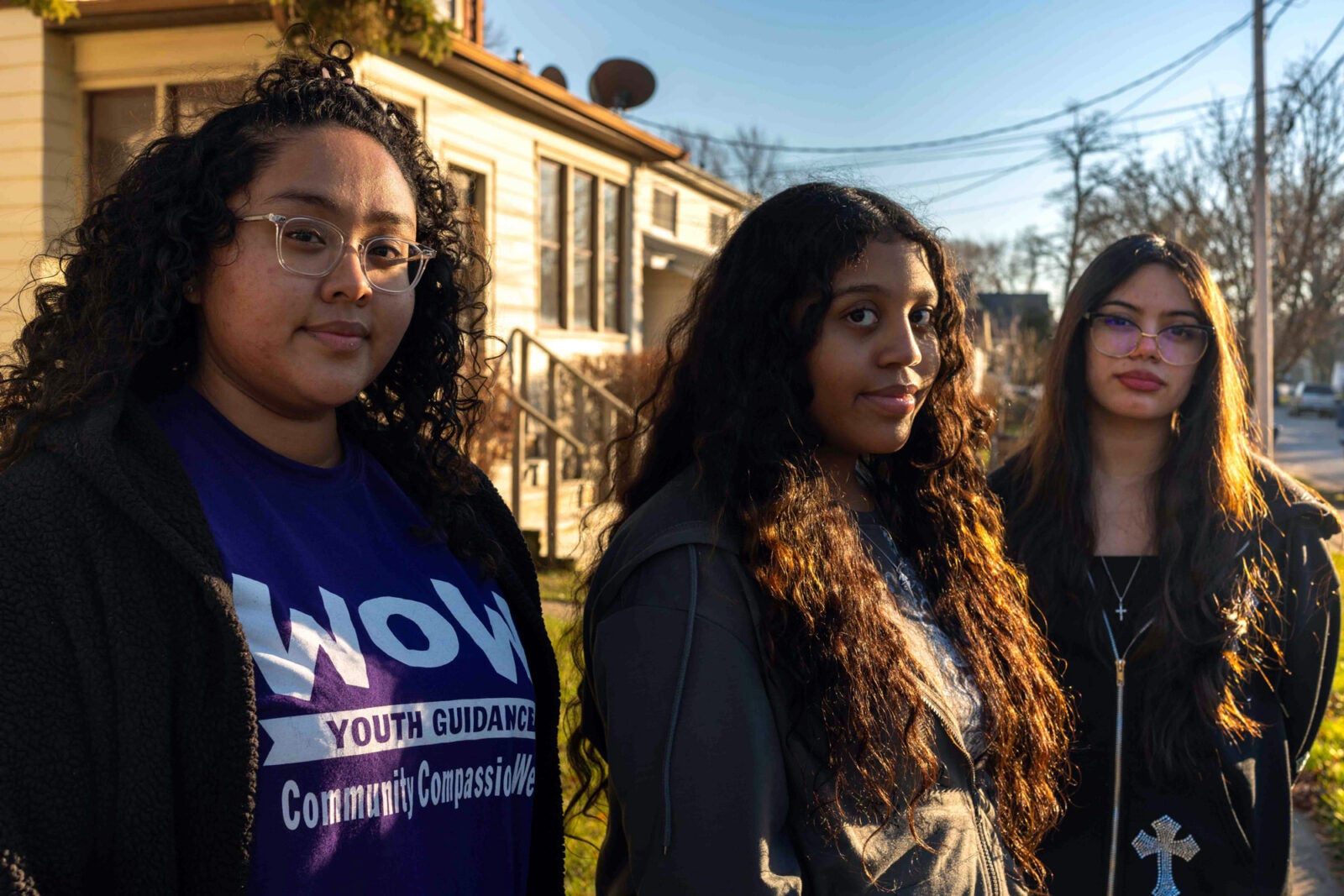Newsletter
HPH Weekly: How AI misinformation could impact the future of public health
This edition of Harvard Public Health Weekly was sent to our subscribers on Feb. 16, 2024. If you don’t already receive the newsletter, subscribe here. To see more past newsletters, visit our archives.
How AI misinformation could impact the future of public health

There’s a lot of fear about the potential for AI to generate and distribute health misinformation at a larger scale than ever before. In an essay leveraging his own personal (and positive) experiences with AI, Harvard T.H. Chan School of Public Health Professor Andrew Beam reminds us that the technology can be used to support accuracy, democratize information access, and improve research and understanding, too. “In much the same way that large language models can be fine-tuned to deliver misinformation,” he writes, “so too can they be aligned to provide reliable and high-quality public health information at scale.”
Artificial intelligence in health care: 3 ways to use it

Health care journalist Elizabeth Gardner shares reasons to be optimistic about AI as a tool for public health. It’s already being used to improve outcomes by handling routine functions without getting bored or tired like humans do—“even those [tasks] that still require some expert judgment,” she writes. That’s how AI is making waves in the areas of postpartum care, antibiotic-resistant infections, and colorectal cancer screening.
Editorial cartoon: AI in health care, by Natasha Loder

Working on Womanhood: Reducing PTSD among girls
The United States is failing its teen girls. As they experience record-high levels of violence, sadness, and suicide risk, a program in Chicago is providing much-needed hope. Youth Guidance’s Working on Womanhood (WOW) is the subject of the second event in our Public Health in Action series with The Studio at Harvard Chan School. In a 30-minute conversation, Jina Moore Ngarambe, HPH managing editor, talks to Bansari Pandit, WOW program alum; Ngozi Harris, WOW director of program and staff development; and Monica Bhatt, senior research director at the University of Chicago Education Lab.
Inside one school district’s game-changing experience with WOW

Alongside our Public Health in Action event, HPH is republishing a piece by The Hechinger Report with further details on the need WOW is meeting in the Chicago area—particularly for Black and Hispanic teen girls. One striking statistic: in one Chicago school district, 38 percent of girls in grades 9 to 11 exhibited signs of PTSD, according to a landmark study.
This article was originally published by The Hechinger Report.
What we’re reading this week
- AI cannot be used to deny health care coverage, feds clarify | Ars Technica
- Washington tries to catch up with AI’s use in health care | KFF Health News
- Unique program helps older adults grappling with dual diagnosis | MindSite News
- Op-comic: Could ketamine help my depression? | Los Angeles Times
- A prescription for housing? | Vox
- Related: North Carolina’s radical Medicaid reinvention | Harvard Public Health
Sign up for Harvard Public Health
Delivered to your inbox weekly.
